We asked our authors to recommend a book they had read over the past couple of years. Here is what they said:
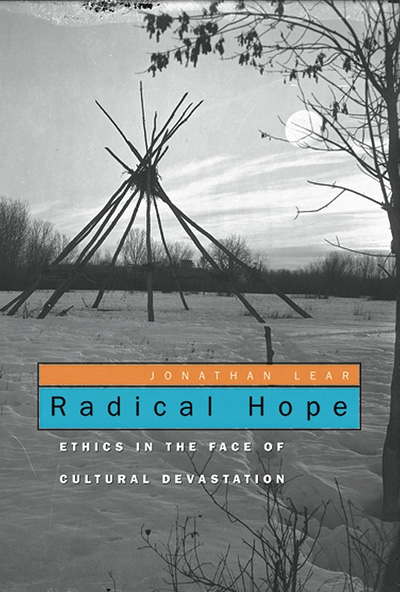
Drawing on the story of the existential threat to the Crow Nation, Lear considers how cultivating radical hope helps people endure the unimaginable. It’s a book for anyone whose life is precarious, which is to say, it’s a book for all. —Lydia S. Dugdale
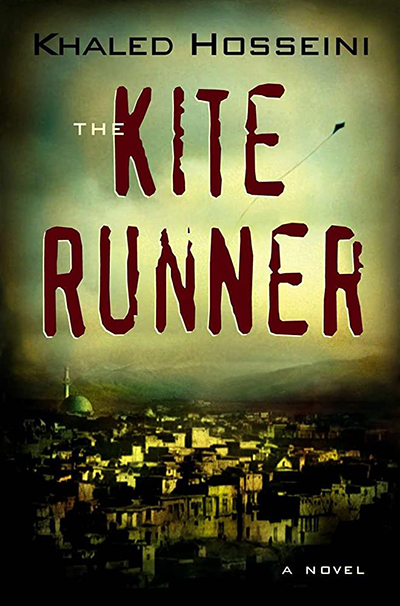
The Kite Runner is a powerful, emotional novel that shows the complex reality of human existence through the lens of friendship. One of the best stories I have read. —Nooshin Javadi
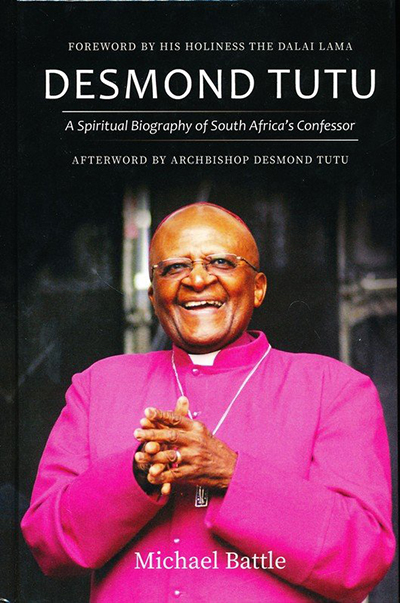
In his Spiritual Biography (2021), Michael Battle shatters the false binary between the sacred and the secular by making a compelling case that Archbishop Tutu’s political actions for social justice were not in spite of his deep spirituality, but rather because of it. In this regard Tutu’s social spirituality modeled and embodied what The Kairos Document: Challenge to the Church, produced by black Anti-Apartheid theologians in 1985, called prophetic theology, i.e. speaking truth to power. —A. Rashied Omar
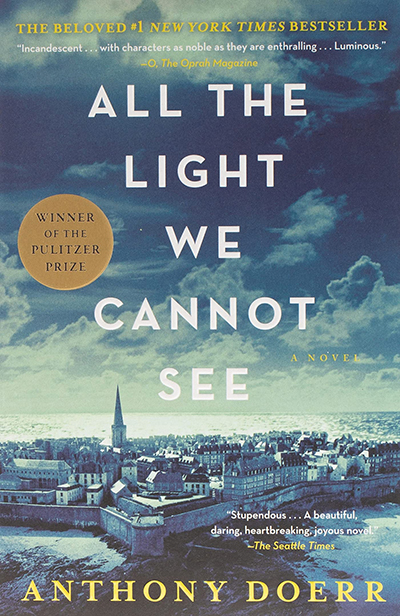
This book is a hauntingly beautiful, fast-paced story of hope, courage, and everyday resistance during World War II, which seems an apt recommendation for this issue of Virtues & Vocations. It reminds the reader that there is light (and goodness) even in the darkest (and cruelest) of times. —Suzanne Shanahan
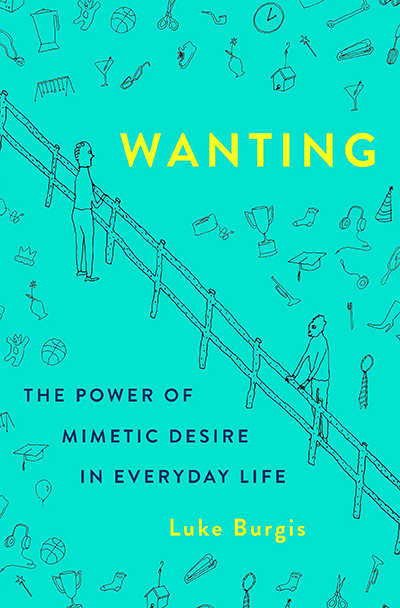
It’s rare to encounter an idea that fundamentally reshapes the way you see the world. Rene Girard’s theory of mimetic desire was such an experience for me. It revealed that most of my desires were not my own, but borrowed; I was unwittingly imitating others. Recognizing how and why this happens is liberating; it allows you to uncover the hidden influences driving your desires, and empowers you to redirect them. Luke Burgis’s Wanting offers the best recent introduction to Girard’s oeuvre and to how mimesis works in all aspects of our lives.
—Brandon Vaidyanathan
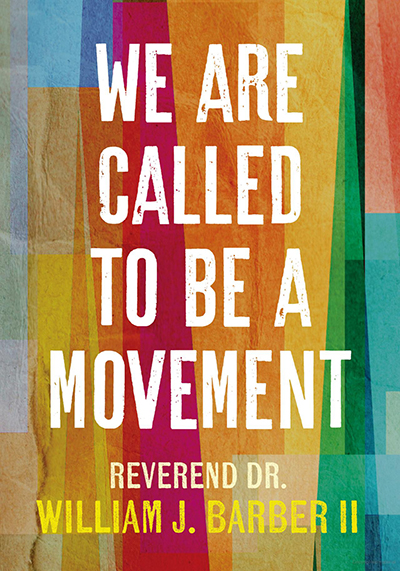
In the age of YouTube, sermons are almost never published anymore. But Rev. Barber is a master of the art of preaching in the public square, and this sermon to America, which can be read in a single sitting, diagnoses so much of what ails us as a society and breathes a prophetic Word of hope into our common life. At its best, a sermon can get inside its listener and not only speak to them, but also through them. I love this book because it invites its readers to join a movement that offers real hope to them and the world around them. —Jonathan Wilson-Hartgrove
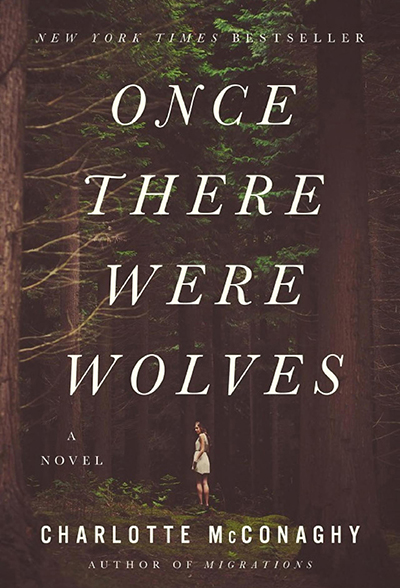
This is the most gripping novel I have read in years, with characters hard to forget. It describes how violence undoes the world, and what forms of empathy we will need to live peaceably with each other and with the earth. —Norman Wirzba
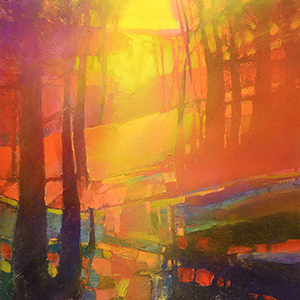
Adolescents constitute a significant demographic in our contemporary digital landscapes, leveraging online platforms for social interaction, learning, and self-expression. Yet they are disproportionately vulnerable to myriad online threats, including cyberbullying, exploitation, and privacy breaches, etc. This vulnerability is further compounded for marginalized and underrepresented groups, who often face systemic barriers and discrimination in digital spaces given their unique experiences. To safeguard the well-being and rights of all adolescents online, it is imperative to adopt an inclusive approach that recognizes and addresses the intersecting axes of identity, privilege, and power dynamics and how this plays a role in their online experience.
To do this my research aims to 1) Explore the online behaviors, challenges, and coping mechanisms of marginalized and underrepresented adolescent populations. Through qualitative and quantitative methodologies, I hope to understand how the intersecting factors of their identities shape their online experiences. 2) Use insights gleaned from empirical research to propose and design culturally competent technological interventions aimed at promoting digital literacy, resilience, and responsible online conduct among marginalized adolescents. To achieve this, we collaborate with community stakeholders, including educators, mental health professionals, and youth advocates to co-create intervention strategies that resonate with diverse cultural contexts and lived experiences. 3) Through my research, I engage in advocacy efforts to inform and shape policy discourse surrounding adolescent online safety and privacy. I advocate for the implementation of evidence-based policies that prioritize the rights and well-being of marginalized and underrepresented users.
Ultimately, by centering the voices and needs of the most vulnerable, we can aspire towards digital environments that uphold the principles of equity, justice, and human rights for all.
Dennis Wieboldt is a JD/PhD student in History at the University of Notre Dame. His research explores the relationship between law, politics, and religion in the twentieth-century United States, with a particular focus on the development of American Catholic legal thought and institutions. After Catholic law schools began to rise to prominence during the mid-twentieth-century, Dennis’s research illustrates how members of a once-marginalized faith community attempted to build bridges with non-Catholics to effectuate their vision of a more just society. By producing legal scholarship, establishing new law schools, launching public-relations campaigns, facilitating inter-religious dialogue, and prominently participating in social movements, his research reveals the many tools which Catholics used to shape American legal thought more broadly. In so doing, Dennis demonstrates that Catholic lawyers and legal scholars exerted influence on this important moment in American legal history through both constructive critiques of ascendant legal methods and active participation in the networks that would later produce these methods. At times, the complexities of Catholics’ involvement in American law and politics therefore created intra-ecclesial hostility and heightened inter-confessional tensions. Nevertheless, this involvement also reflects American Catholics’ enduring desire to bring the insights of the Catholic intellectual tradition into conversation with the American legal tradition, sometimes yielding surprising results.
Hearing economist and historian Richard Rothstein speak at the beginning of my sophomore year about his then newly-published book The Color of Law completely changed my academic trajectory. I changed my major to urban history and picked up minors in real estate and in politics. I realized that the places where we live, where we work, and more were not created arbitrarily. Rather, many of the injustices that we still see today–whole neighborhoods bisected by six-lane freeways, disinvestment in public transportation, a lack of a diversity of housing options (particularly affordable housing), and more–were caused very intentionally by a combination of public policies and private enterprise.
My task now as a graduate student in the Mendoza College of Business has been to explore how the private and public sectors can better work together to right many of these wrongs–to reconnect neighborhoods, invest in affordable housing and public transportation, and more.
Much of my research manifested itself through a real estate case competition I participated in this semester, the annual Real Estate Challenge run by the Harold E. Eisenberg Foundation, a nonprofit organization based out of Chicago dedicated to real estate education. This year’s competition focused on redeveloping 21 acres of land along the Mississippi River in St. Louis, Missouri. The area has seen disinvestment for decades and is completely cut off by Interstate 44, which bisects the City of St. Louis. Rather than focus on a redevelopment proposal that merely maximized return on investment, our team worked diligently to craft a proposal that respected the wishes of the local community around the site and the City of St. Louis more broadly. Many community action plans published over the years have revealed a strong desire for an accessible, mixed-use neighborhood along the Mississippi. Thus we planned a new neighborhood with community small businesses, apartments, two restaurants, other retail options, and a hotel for the site. We also planned to convert a third of the entire site into a public park and trailhead for the St. Louis Riverfront Trail. Projects like these certainly aren’t easy, but our work showed that with dedication, and the right incentives, reinvestment in an area like this one is possible. It is possible to develop not merely based on profit, but with the people in mind as well.
I continue to research how programs like the LIHTC program–the Low Income Housing Tax Credit program, perhaps the most robust system of incentives for private developers to construct affordable housing–can be expanded. Right now it is extremely difficult to win a LIHTC grant, particularly those structured as a 9% tax credit, which minimizes the gap in equity capital needed to fund something like a new affordable housing development. Many other promising signs abound, such as the Department of Transportation’s Reconnecting Communities and Neighborhoods Grant Program, which was launched under the leadership of President Joe Biden and Secretary of Transportation Pete Buttigieg. For Fiscal Year 2022 alone, $185 million was allocated by the federal government for 45 communities across the United States to pursue projects such as dismantling urban freeways. Urban freeways, which usually completely bisect neighborhoods–usually neighborhoods of color–have been systematically proven to increase rates of asthma and certain cancers by 3.4 times.
There is certainly more work to be done. But it is painfully evident to me that meaningful progress will not be made unless the government and the private sector work together to reinvest in and reconnect our communities and better advance the common good.
In my research, I am constellating the relationship between ghosts, performance, and historical calamities of colonization and enslavement around the Atlantic. I analyze haunting in Anglophone drama from the mid-20th Century to the present, using plays from Nigerian, St. Lucian, Irish, Scottish, and American writers to understand ghosts as a phenomenon on stage. My project consists of two major claims: firstly, an ideological claim that ghosts in literature are a useful tool for thinking about violence carried out on a national (or global) level; secondly, a generic claim that the presence of ghosts on stage affords mechanisms of understanding historical calamity that are not otherwise available.
Metaphors of haunting abound in literature around the Atlantic, particularly in drama from the last half-century: Wole Soyinka’s Death and the King’s Horseman, Derek Walcott’s Ghost Dance, LeAnne Howe’s Savage Conversations, Marina Carr’s Portia Coughlan, to name only a few. But I realized that most scholarship following the critical “spectral turn” (precipitated by Jacques Derrida’s Spectres of Marx) focused on novels of film. This seemed a shame because metaphors of haunting on stage are, to me, the most exciting. In fact, haunting on stage is barely even a metaphor. If you see a play with a ghost, there is actually a ghost in the room with you. One of the key questions of my work is, “what does a ghost in the room help us understand about time, history, our bodies, our nations, our environments, our lives?”
In my work, I pair plays from different national literary traditions in order to understand:
Questions 2 and 3 might seem to be in conflict, but I hope that taking them together will illustrate the relationship between ghosts and historical calamity in broad terms, but also how ghosts exist in the context of specific cultures, orientations to the dead, and circumstances of calamitous violence. For example, August Wilson’s The Piano Lesson and Conor McPherson’s The Veil both feature unseen ghosts which exert physical force on stage. To me, those ghosts offer a way to consider continuing physical consequences of catastrophes which are purportedly already over. At the same time, the ghost in The Piano Lesson speaks specifically to the legacy of American slavery in the lives of Black Americans, while the ghost in The Veil speaks specifically to the Irish big house and colonization in rural Ireland. There are overlaps between these plays that help us understand what ghosts do, but neglecting their differences would obscure how ghosts also function differently depending on the circumstances that necessitate haunting.
I believe that ghosts allow writers to imagine both the horrific ramifications of unrectified pasts resurfacing, but also, paradoxically, allow writers to consider what adequate reckoning with the past would look like in order to create paths toward more just futures. I do not argue that we can simply save the world with theatre, but I do think theatre literally creates space to imagine how the past, present, and future interlock. On stage, ghosts offer avenues to think forward and backward, about success and failure, about violence and healing, about oppression and justice, about living and dying in ways that allow writers, theatre practitioners, and audiences to be haunted together. And if we can be haunted together, maybe we can imagine a world where we do not have to be haunted at all.
Chronic kidney disease (CKD) is an urgent public health crisis, affecting millions of people around the world. Furthermore, among 10 people with CKD, 9 are not aware of their conditions. Additionally, kidney diseases have been reported to be more prevalent among the elderly, women, and minorities. Thus, there is an urgent need to understand kidney development for better detection of CKD. One of the major challenges in detecting kidney diseases is our nascent understanding of cell types important for kidney development and the genetic pathways controlling them. For example, multiciliated cells (MCCs) is a specialized cell type only found in many diseased human kidney states (1,2). However, we currently have limited knowledge of the genetic pathways underlying MCC development.
In my research, we studied the genetic pathways underlying the developmental genetics of MCCs using the amenable zebrafish kidney. My research focused on the role of empty spiracles homeobox gene 2 (emx2), a transcription factor previously found to be active in several developmental processes around the body, in ciliated cells development. In my research, we found that emx2 plays an essential role in cilia development across various embryonic tissues, including the ear, neuromasts and Kupffer’s vesicle (KV). We found that emx2 deficient zebrafish embryos exhibit several defects, such as altered fluid homeostasis and decreased MCCs in the zebrafish embryonic kidney. My research further discovered that emx2 deficiency in cilia development was linked to prostaglandin biosynthesis, an important biological pathway that plays major roles in several developmental processes. More specifically, we discovered that emx2 is upstream of several players of this pathways in regulating renal MCC development, such as the transcriptional regulator peroxisome proliferator-activated receptor gamma 1 alpha (ppargc1a) and its downstream target prostaglandin-endoperoxide synthase 1 (ptgs1), which encodes a crucial enzyme for production of the prostanoid ligand prostaglandin E2 (PGE2). Additionally, defects of renal MCC development in emx2 deficient embryos can be rescued with the provision of ptgs1 and ppargc1a transcripts or exogenous PGE2. Our study thus revealed essential roles of emx2 in cilia development across tissues, especially in regulating prostaglandin biosynthesis in renal MCC development. Our study is thus significant in calling attention towards prostaglandin signaling and renal MCC development as helpful targets for detection of kidney diseases. Furthermore, the application of the small molecule PGE2 opens a promising direction to utilize it as a therapeutic treatment for renal cilia dysfunctions in kidney diseases.
References:
1) Katz, S. M., & Morgan, J. J. (1984). Cilia in the human kidney. Ultrastructural Pathology, 6(4), 285–294. https://doi.org/10.3109/01913128409018587
2) Lungarella, G., de Santi, M. M., & Tosi, P. (1984). Ultrastructural Study of the Ciliated Cells from Renal Tubular Epithelium in Acute Progressive Glomerulonephritis. Ultrastructural Pathology, 6(1), 1–7. https://doi.org/10.3109/01913128409016659
Representation is important, especially for marginalized groups whose voices have been historically and systematically silenced. Young people benefit immensely from seeing themselves in the stories they read, and indeed there are slowly and steadily increasing numbers of children’s books that meet this need and represent diverse voices1. However, these are the exact books that are also under increased scrutiny around the county. 2022 and 2023 were record-breaking years for book ban attempts, both school and public libraries, and these attempts typically target books by or about people of color or LGBTQ+ people2. Book bans are happening around the country at the same time that we’re seeing increased concerns over facism in the United States, and efforts at censoring discussions related to race, gender, and sexuality more broadly3, 4, 5. Now more than ever, knowing why people try to censor certain stories, especially stories made for kids, is crucial.
My research seeks to answer the question of why people invest in keeping certain voices and stories out of their public libraries. In short- why participate in a book ban, and what is it about these books that matter? I use a mixed methods approach that combines recordings of library board meetings, interviews with librarians and conservative activists, and analysis of documents and media related to four book ban attempts around the county. This research contributes to sociological studies of conservative social movements, gender scholarship, and more broadly to studies of how inequality endures across time. Conceptualizing book banning as investment in maintaining a particular social structure across generations is useful for exploring the ways that hierarchies of inequality are defended, challenged, or made salient in communities across America.
When we understand why people put a lot of time, effort, and hard work into banning or censoring certain books and stories, we can take an important step forward on the path to justice. At its core, I believe that justice is a collaborative project, and this means listening to and learning from the concerns people have. Doing so opens up opportunities for productive dialogue about books and childhood, reveals the fears or threats that people respond to on a structural level, and makes room for empathy. I hope my research can inform education and outreach efforts that aim to bridge the divide between groups in communities to move towards a more just and equitable future.
Anthropogenic climate change is increasingly causing disruptions to ecological communities upon which Native communities have relied for millennia, raising existential threats not only to ecosystems but to Indigenous peoples. Current governance structures, lacking adaptive capacity, struggle to address these disruptions. However, Indigenous communities are pioneering innovative adaptation strategies rooted in Traditional Ecological Knowledge (TEK).
My research investigates the efficacy of Indigenous climate adaptation plans, focusing on their unique approach to managing ecological change. Species must respond to changing environmental conditions by relocating or face extirpation, quite literally “move or die.” Unlike traditional conservation paradigms for species persistence, which often prioritize static baselines and struggle to adapt to rapid environmental shifts, Indigenous adaptation emphasizes long-term sustainability under potentially drastic environmental conditions. These frameworks integrate TEK with contemporary scientific methods, fostering a deeper understanding of ecosystem dynamics. This holistic approach allows for flexible responses to unforeseen environmental challenges, aiming to ensure the persistence of culturally significant species and the ecological integrity of ancestral lands.
By highlighting these often-neglected efforts, my research aims to elevate Indigenous voices in ecological discourse. Opportunities for integrating TEK-based adaptation strategies into broader climate change governance frameworks ought to be explored and prioritized. Such a collaborative approach fosters enhanced resilience for both Indigenous communities and other governments. Notably, successful integration necessitates dismantling existing power structures that currently marginalize Indigenous knowledge systems. Effective co-management requires fostering intercultural competencies within governing bodies to facilitate meaningful collaboration. This includes recognizing the legitimacy of TEK alongside scientific methodologies and ensuring equitable participation of Indigenous stakeholders in decision-making processes.
The climate crisis represents an existential catastrophe that threatens to adversely impact everyone on earth for generations. But it will not impact everyone equally, and the manner and extent to which people are impacted will not relate in any way to their role in creating the crisis. It is in this very immediate context of current and future suffering that the idea of justice becomes a central consideration of how we should respond to climate change.
As a social scientist and a peacebuilder I’m hugely concerned with the social and political effects of climate change and I am especially drawn to questions around the role the climate crisis will play in creating and exacerbating violence and violent conflict around the world. Furthering our understanding of the ways in which this relationship might manifest is key to designing just and practical peacebuilding solutions that prioritize human dignity and security.
Alongside this I am immersed in questions of gender justice and trying to understand how in a world dominated by patriarchal violence and an orthodoxy promoting violent constructions of masculinities, we can seek new ways to pursue gender justice for people of all gender identities. My research often finds intersections across both these areas asking questions such as “Do performances of masculinity exacerbate links between climate change and violent conflict?” and “Where will the impacts of climate change be most likely to reinforce rigid patriarchal norms?” Asking these questions and finding novel, innovative ways to try and answer them are part of my idea of what I want to develop into as an academic. I would like to be able to produce research that not only furthers knowledge but also does so in a way that provides a tangible and practical evidence base for the kind of peacebuilding work that I believe is necessary in pursuit of justice.
In the future I hope to develop these research interests further into a broader portfolio of inquiry that retains questions of climate justice and gender justice as a primary motivation. Increasingly I am drawn to models of research design that move away from a distant and technical scholarly pursuit and towards a more responsive, dialogue-based form of design that begins with understanding community needs and considers the research produced not just as a product but also as a form of solidarity with those most impacted by what is being studied.
I believe that schools play a key role in the creation of a more just and equitable society. Each day, schools do phenomenal work educating students, promoting empathy, and connecting families with resources. Through this work, schools can change the trajectory of students’ lives. Given the immense power and responsibility of schools, my research thinks about the ways schools implement policies and interventions and the impacts of those efforts.
My first strain of research considers the impacts of academic policies on students. As a former elementary school teacher, I am passionate about foundational reading skills and ensuring that all students learn to read. In this line of work, I consider the impacts of third grade retention policies under which students who do not show they are able to read repeat third grade in hopes of improving their literacy skills before they get further along in their education. Through my research, I examine trends in which students are most likely to be retained. I consider the ways Black, Latino and white students are differentially retained and how this may relate to state policies that control how retention decisions should be made: whether teachers and school leaders decide, a standardized test or a combination of the two. I also examine how the probability of retention varies by socioeconomic status. Reading is a foundational skill students rely on for the entirety of their lives. Identifying the ways we can support students in building these reading skills is vital.
My second strain of research considers school climate and the ways that this can impact teachers and students. I consider the role of school violence and safety policies and how it shapes students’ and teachers’ feelings at school, as well as their outcomes. This is especially important as we recover from the pandemic and face increasingly difficult school environments including school shootings, book banning, and among other threats. We know that academic outcomes are shaped by many factors including feelings of connectedness and safety. Through my work I aim to consider both academic and non-academic outcomes, and the policies that shape these experiences.
Schools are a key social institution in the US. By understanding how different policies impact students in schools, we can work to make schools better places for everyone. I am committed to conducting research that supports schools in becoming more just, equitable, and joyful.
As a scholar-practitioner of peace studies and social/developmental psychology, I am most broadly interested in the psychological dynamics that affect the development of peace and conflict both within individuals and among groups in society. My research has focused on two psychological constructs that reflect how people relate to one another amidst social conflict. I believe that these two constructs, when combined and held in tension with one another, are the engine of a constructive and nonviolent social change that contributes to a positive peace (i.e., a peace characterized by social justice).
The first construct is relational empathy. Empathy is one of those buzzwords that one hears all the time, but it has been incredibly difficult for scholars to precisely define and study. In my research, I have been interested in examining how empathy is a relational tool that can be used during conflict to reduce defensiveness and help meet needs in the recipient, which, through processes of positive reciprocity, may in turn help meet the needs of the empathizer. Growing evidence suggests that perceived empathy meets a variety of basic psychological needs and social motives, such as shared reality and belonging, self-esteem, safety, autonomy, and insight and learning (Goldstein et al., 2014; Itzchakov & Weinstein, 2021; Koudenburg, 2018; Reis et al., 2017). It is precisely those needs that are likely to be threatened during conflict, and my research examines whether receiving empathy might even play a larger role in conflict transformation and relational heath than giving empathy. This is because receiving high-quality empathy is a form of metacommunication that signals emotional safety and trustworthiness.
The second construct is critical consciousness, or conscientização, a phrase first coined by the Brazilian educational theorist Paulo Freire that describes a person’s attitudinal and behavioral orientation to structural and systemic social injustice. Critical consciousness includes not only an attitudinal/attributional component about institutionalized inequity (critical reflection), but also an endorsement of sociopolitical efficacy (i.e., a belief that systemic change is possible through, in part, one’s own agency) and critical action (i.e., individual or collective behaviors that are intended to achieve more social justice) (Diemer et al., 2021; Watts et al., 2011). My research has begun to examine some of the psychological factors that contribute toward or away from the development of critical consciousness, such as having early experiences of parental nurturing or multicultural exposure.
Ultimately, I am interested in how nonviolent conflict engagement involves a dialectical tension—or a skillful dance—between insistence for social justice, driven by a robust critical consciousness, with high-quality and unyielding empathy. It is this kind of “fierce love” that I think represents a unique psychological and relational force that is severely undertheorized and understudied. It is also perhaps one of the most difficult psychological feats to accomplish.
The Internet was originally imagined as a place where the global human family could find authentic community. While we do experience good benefits from the Internet today, we also experience a number of bad consequences, including polarization, misinformation, and harassment. For some people, these negative effects make them want to get rid of technology entirely. However, both secular scholars of philosophy of technology and the three most recent popes agree that creativity is an essential part of being human, and the question is not should we have technology or not, but rather, how can we build technology in a way that promotes human dignity and the common good.
A lot of work has been done in technology ethics to point out the issues with technology, and even to suggest patchwork solutions to fix these issues within the existing technologies. Less work has been done to completely re-imagine what technology would look like if it was built with human values in mind from the start. In our research, we propose Catholic Social Teaching as the basis for a framework to guide the development of Internet technologies towards human dignity and the common good. We chose Catholic Social Teaching to guide our framework because it is a body of work originally formed to respond to the societal challenges caused by engineering: Catholic Social Teaching began in response to the injustices that arose in the Industrial Revolution. As scholars at a Catholic university we find it fitting to draw from the wisdom of our tradition, and Catholic Social Teaching allows us to do so. At the same time, Catholic Social Teaching’s emphasis on human dignity and the common good allows it to have a broad enough appeal to resonate with people of diverse backgrounds.
Thus far, my collaborators and I have created a software engineering framework based on the principles of Catholic Social Teaching intended to evaluate existing technologies in light of Catholic Social Teaching and to guide the development of new technologies towards human dignity and the common good. We propose this framework in our upcoming book Virtue in Virtual Spaces: Catholic Social Teaching and Technology which will be published by Liturgical Press in September 2024. In the book we also examine four case studies of existing technologies in light of our framework and demonstrate that the success of these platforms in creating healthy online spaces is correlated with the extent to which these platforms have aligned with Catholic Social Teaching in their designs. In the future we plan to further our case studies to further flesh out which interaction design patterns are harmonious with our framework and thus should be used in technologies that aim to promote the common good.
Kaitlyn Bowe is a J.D. student at the University of Notre Dame. Her research examines America’s mass incarceration crisis, seeking transformative justice at the intersection of law, community, and equity. Given the existence of staggering statistics and systemic disparities, she endeavors to understand the complexities of America’s punitive approach to criminal justice and advocates for proportionality in sentencing. As the world’s leader in incarceration rates, the United States has demonstrated that incarceration alone fails to address the root causes of crime. Kaitlyn’s research explores the disparities and inequities present within the American criminal justice system. From inconsistency in sentencing to disproportionate outcomes, the system places a heavy burden on individuals, families, and communities. African Americans and other marginalized groups are disproportionately impacted, facing harsher sentences and less access to rehabilitative services. However, amid these challenges, hope emerges with the introduction of rehabilitation and restorative justice approaches. Drawing on evidence-based solutions and expert knowledge, these alternatives offer pathways toward redemption and reintegration.
Focusing on rehabilitation rather than punishment, Kaitlyn researches how we can address the underlying causes of criminal behavior and break the cycle of recidivism. Her research offers avenues for addressing the mass incarceration crisis and reducing crime. Central to these recommendations is the need for nationwide legal reforms, grounded in criminology, human behavior, and development. By embracing principles of community, equity, and rehabilitation, legal policies can become instruments of healing and transformation rather than perpetrators of harm and recidivism. Her research explores a new course for the American criminal justice system. Through analysis, advocacy, and engagement with impacted individuals, she seeks not only to understand the system’s failures but to actively contribute to its evolution toward a more just and humane future. By promoting community engagement, equity, and rehabilitation, Kaitlyn believes we can build a legal system that fosters healing, accountability, and societal well-being. By redirecting resources towards preventive measures, such as rehabilitative efforts, restoration, and community support systems, we can foster a society where communities are protected and individuals are empowered to contribute to society in a mutually beneficial way.
The history of vaccine discovery and utilization, from Edward Jenner to the present, has revolutionized the approach to infectious disease management. I recall a lecture from medical school on measles, a disease virtually eliminated in my country due to vaccination. This achievement in a generation changed the course of health care in the country. Yet, other infectious diseases, like invasive fungal infections, still cannot be prevented.
The annual incidence rate of invasive fungal infections is estimated to be about 6 million cases with over 50% mortality. In the Santiago-Tirado lab, one of the fungal pathogens of interest is Cryptococcus neoformans. It is a ubiquitous environmental yeast found in the soil and pigeon guano, to which everyone is exposed. In the immunocompromised, such as people living with HIV/AIDS, it causes severe life-threatening cryptococcal meningitis. Cryptococcal meningitis affects approximately 194,000 people, with 147,000 deaths. Advances in medicine including organ transplantation and treatment of autoimmune diseases have resulted in an increase in the population of immunocompromised people, which may increase this disease burden. The advent of antibiotic-resistant strains and a few, expensive and toxic antifungals is worsening this plight.
My research, in collaboration with another graduate student in the lab, uses immunological and cell biology assays, and microscopic techniques to understand the interaction between the fungi and the host alveolar macrophages, the first line of immune defense. When alveolar macrophages encounter Cryptococcus neoformans in the lungs, they form a membrane-bound structure called the phagosome around it, which goes through a series of complex maturation processes leading to the elimination of the pathogen. However, in an immunocompromised person, the pathogen modifies portions of this maturation process enabling it to survive, disseminate from the lungs to the brain, and cause life-threatening meningitis. Understanding how the pathogen does this will help serve as a piece of foundational knowledge for developing cheaper vaccines and improved therapeutics against the disease.
Beyond the need for cheaper vaccines and less toxic drugs is to make them available on time to low-income settings that are disproportionately affected by the disease burden. Data from the COVID-19 pandemic indicates that most of the populations in these areas had less than 10% coverage during initial vaccine rollouts, despite rapid vaccine development. This unfair healthcare coverage results in epidemics that weaken their underserved healthcare systems, and deficient socioeconomic conditions, and reduce life expectancy. This indirectly may affect various industries around the world that depend on the abundant natural and human resources found in these areas.
In the long term, I hope to leverage the skills and knowledge gained from medicine, science, and socio-ethical training such as the Graduate Justice Fellowship with the Institute for Social Concerns, to collaborate with organizations such as the WHO, and research and local government institutions to help strengthen local research and development companies to help serve the needs of such populations.
References